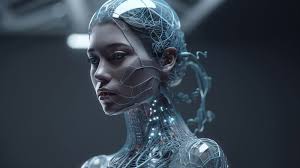Defining the Cyborg
The term "cyborg," short for cybernetic organism, describes any individual incorporating artificial components into their biological systems. This fusion of human and machine can range from simple medical devices like heart pacemakers to more complex integrations like neural implants. But as technology advances, the line between human and machine becomes less clear. Are cyborgs more robot or human? This question is not just scientific but deeply philosophical.
Technological Integration and Human Identity
Cyborgs challenge our traditional views on human identity. For instance, individuals with advanced prosthetics or brain implants can perform tasks beyond the typical human range, such as interfacing directly with computers or experiencing enhanced physical abilities. According to a 2023 report from the International Cyborg Society, approximately 4 million people worldwide live with advanced prosthetic limbs that offer capabilities such as real-time tactile feedback, vastly outperforming organic limbs in durability and precision.
Neurological Enhancements: Blurring the Lines
Neural enhancements represent one of the most significant areas of cyborg technology. These devices can improve memory, increase cognitive speed, and even allow for direct communication with digital interfaces. A study conducted by NeuroTech AI in 2025 found that individuals with cognitive implants could process information up to three times faster than the average human. This enhancement begs the question: does augmenting human faculties with machine intelligence make someone less human, or simply a new version of human?

Ethical and Social Implications
The integration of technology into human biology brings up a host of ethical questions. For example, there is a growing debate about the inequality potentially created by cyborg technologies. Those with access to advanced enhancements may have significant advantages in both professional and personal arenas, potentially leading to a new form of social stratification. Furthermore, as cyborg technologies advance, societies will need to redefine legal and social norms around privacy, consent, and identity.
Human or Not: The Cyborg Conundrum
The essence of being human involves more than just biological makeup; it also includes consciousness, emotions, and social connections. While cyborgs may integrate more machine parts, they typically retain their human consciousness and emotions, arguing for a view that they remain more human than robot. For a deeper exploration of these themes and to challenge your perceptions, check out human or not.
Navigating a New Reality
As cyborg technology becomes more sophisticated and commonplace, the distinction between 'human' and 'machine' will increasingly be called into question. This evolution will challenge us to consider not only the technological implications but also the very nature of human identity. Whether cyborgs are more robot or human may depend less on the percentage of machine parts and more on the qualities we value as quintessentially human. The future of cyborgs, blending human intuition with robotic efficiency, holds profound implications for society, raising questions that we are only beginning to address. As we advance, our definitions, laws, and morals must evolve to ensure that humanity grows not only in capability but also in wisdom.